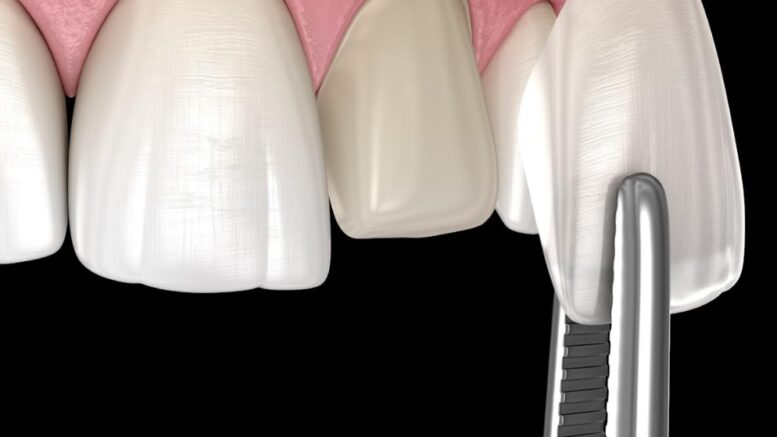Dental veneers, a popular cosmetic dentistry solution, have become increasingly sought after in cities like London. However, many people often wonder about the lifespan of these aesthetic enhancements. Typically, dental veneers can last anywhere between 10 to 15 years, depending on several factors. These factors include the quality of the veneers, the expertise of the dentist, and the patient’s oral hygiene and lifestyle habits. While veneers are not a permanent solution, with proper care and maintenance, they can provide a long-lasting smile makeover. It’s important to note that the longevity of veneers can vary from person to person, making it essential to understand what affects their lifespan. The following sections will delve deeper into these factors, providing a comprehensive guide on how to maximise the lifespan of your veneers in London.
What are Dental Veneers?
Dental veneers are thin, custom-made shells designed to cover the front surface of teeth, improving their appearance. They are usually made from porcelain or composite resin materials, with porcelain veneers being more resistant to staining and mimicking the light-reflecting properties of natural teeth better. Veneers can be used to fix various dental issues, including discoloured, worn down, chipped, broken, misaligned, uneven, gapped or irregularly shaped teeth. The process of getting veneers usually involves three appointments – diagnosis and treatment planning, preparation, and bonding. It’s a popular cosmetic dentistry procedure, especially in bustling cities like London, where a confident smile can make all the difference. However, as with any dental procedure, it’s essential to understand the lifespan of dental veneers and the factors that can influence it.
Factors Influencing the Lifespan of Veneers
Several factors can influence the lifespan of dental veneers. Firstly, the quality of the veneers and the expertise of the dentist play a crucial role. High-quality veneers, coupled with expert application, can ensure a longer lifespan. Secondly, the patient’s oral hygiene habits significantly impact veneer longevity. Regular brushing, flossing, and professional cleanings can help maintain the veneers in top condition. Thirdly, lifestyle choices such as diet and habits like smoking can affect veneer lifespan. Consuming foods and drinks that cause staining, such as coffee and red wine, or smoking can discolour veneers over time. Lastly, grinding or clenching your teeth can damage veneers. Therefore, understanding these factors can help individuals seeking veneers to make informed decisions and take steps to maximise their veneer lifespan.
The Role of Dental Hygiene in Veneer Longevity
Maintaining good dental hygiene is paramount for veneer longevity. Regular brushing and flossing can keep veneers looking their best, preventing plaque build-up and gum disease. It’s recommended to use a non-abrasive toothpaste and a soft-bristle toothbrush to avoid scratching the veneers. Additionally, regular professional cleanings can help maintain the veneers in top condition, removing any hard-to-reach plaque or tartar. While veneers themselves cannot decay, the underlying natural teeth can, making oral hygiene even more critical. Moreover, using an antibacterial mouthwash can further protect against potential decay and gum disease. For those considering veneers, incorporating these dental hygiene practices can significantly enhance the lifespan of their veneers, ensuring a radiant and confident smile for years to come.
The Impact of Lifestyle Choices on Veneer Lifespan
Lifestyle choices significantly impact the lifespan of dental veneers. Habits such as smoking and consuming staining foods and drinks like coffee, tea, and red wine can discolour veneers over time, diminishing their aesthetic appeal. Moreover, habits like teeth grinding or clenching can cause veneers to chip or crack. Using a mouthguard during sleep can help protect veneers from damage caused by grinding. Regular exercise and a balanced diet can also contribute to overall oral health, indirectly affecting veneer longevity. For those considering veneers, being mindful of these lifestyle factors can help maintain the appearance and longevity of their veneers, ensuring a lasting, confident smile.

The Importance of Regular Dental Check-ups
Regular dental check-ups play a crucial role in maintaining the longevity of dental veneers. These check-ups allow dentists to monitor the condition of the veneers and the underlying natural teeth, ensuring any potential issues are identified and addressed early. Dentists can also professionally clean veneers, removing any hard-to-reach plaque or tartar, and provide personalised advice on oral hygiene practices. Moreover, regular check-ups can help detect and manage habits like teeth grinding, which can damage veneers. For individuals with veneers, maintaining a routine of regular dental check-ups can significantly enhance the lifespan of their veneers, ensuring a radiant and confident smile for years to come.
Veneers in London: A Case Study
Consider the case of Jane, a London-based professional who opted for veneers to enhance her smile. Jane’s veneers, expertly applied by a renowned dentist, transformed her smile, boosting her confidence. She maintained excellent oral hygiene, regularly brushed and flossed, and attended professional cleanings. Jane also made lifestyle adjustments by reducing her consumption of staining foods and drinks and using a mouthguard to protect her veneers from teeth grinding. Regular dental check-ups ensured her veneers remained in top condition. As a result, Jane’s veneers lasted over 15 years, exceeding the typical lifespan. This case highlights the importance of understanding and managing the factors that influence the lifespan of veneers. For those considering veneers, Jane’s story serves as an inspiring example of how to maximise veneer longevity.
